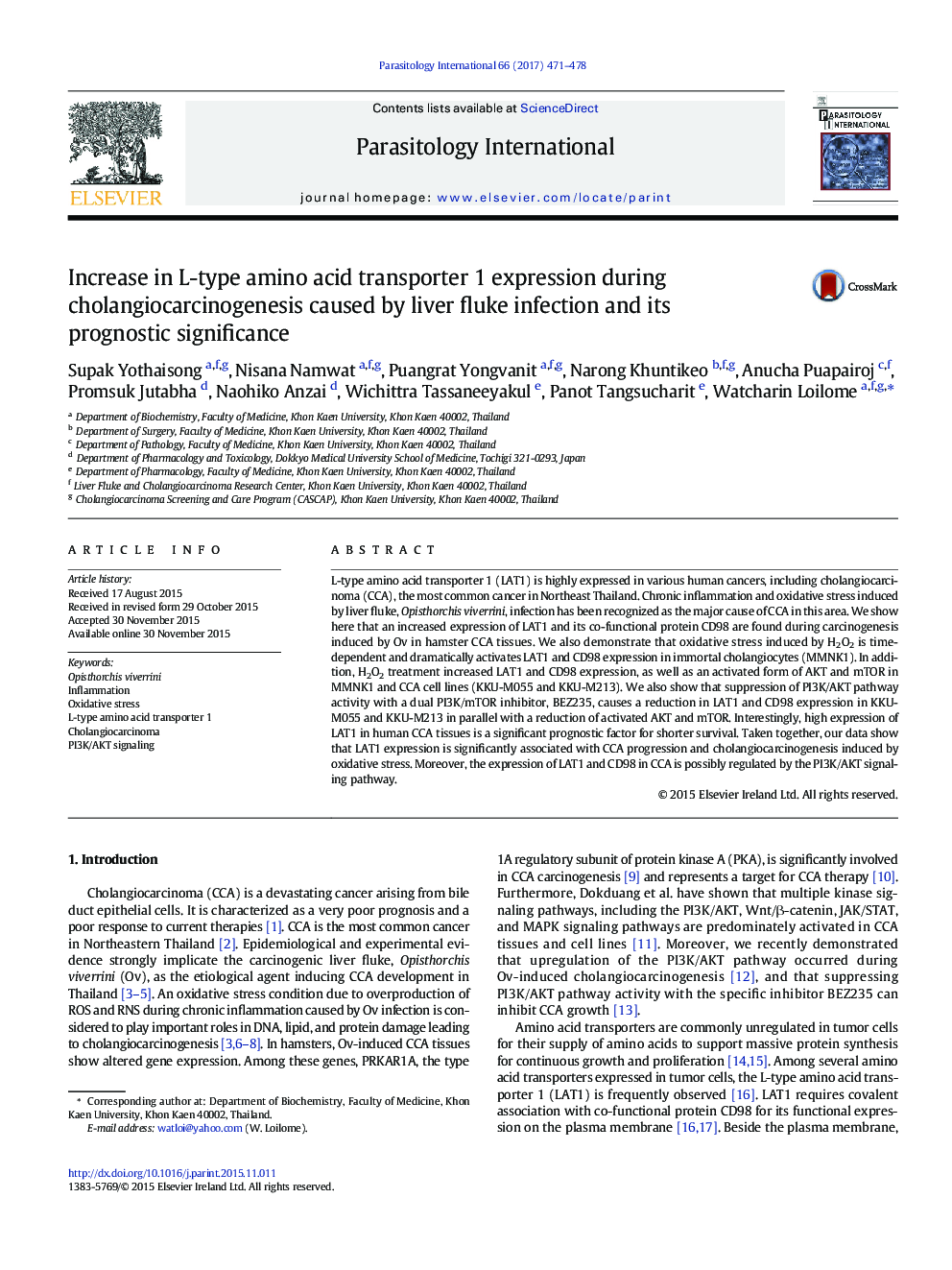| Article ID | Journal | Published Year | Pages | File Type |
|---|---|---|---|---|
| 5674262 | Parasitology International | 2017 | 8 Pages |
â¢Increased LAT1 and CD98 expression during OV-induced CCA carcinogenesis.â¢Oxidative stress activates LAT1 and CD98 expression as well as PI3K/AKT activity.â¢PI3K/mTOR inhibitor, BEZ235 inhibits LAT1 and CD98 expression in CCA cells.â¢High LAT1 expression predicts poor prognosis in CCA patients.
L-type amino acid transporter 1 (LAT1) is highly expressed in various human cancers, including cholangiocarcinoma (CCA), the most common cancer in Northeast Thailand. Chronic inflammation and oxidative stress induced by liver fluke, Opisthorchis viverrini, infection has been recognized as the major cause of CCA in this area. We show here that an increased expression of LAT1 and its co-functional protein CD98 are found during carcinogenesis induced by Ov in hamster CCA tissues. We also demonstrate that oxidative stress induced by H2O2 is time-dependent and dramatically activates LAT1 and CD98 expression in immortal cholangiocytes (MMNK1). In addition, H2O2 treatment increased LAT1 and CD98 expression, as well as an activated form of AKT and mTOR in MMNK1 and CCA cell lines (KKU-M055 and KKU-M213). We also show that suppression of PI3K/AKT pathway activity with a dual PI3K/mTOR inhibitor, BEZ235, causes a reduction in LAT1 and CD98 expression in KKU-M055 and KKU-M213 in parallel with a reduction of activated AKT and mTOR. Interestingly, high expression of LAT1 in human CCA tissues is a significant prognostic factor for shorter survival. Taken together, our data show that LAT1 expression is significantly associated with CCA progression and cholangiocarcinogenesis induced by oxidative stress. Moreover, the expression of LAT1 and CD98 in CCA is possibly regulated by the PI3K/AKT signaling pathway.
Graphical abstractDownload high-res image (242KB)Download full-size image
